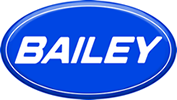How to Turn Your Holiday Home into a Profitable Investment
Welcome to our latest blog post. Today, we focus on the intriguing world of holiday homes and how they can be more than just a sanctuary for rest and relaxation.
Indeed, a holiday home can be a lucrative investment, providing a steady income stream if managed correctly. We will navigate through six pivotal strategies that could significantly enhance the profitability of your holiday home.
So, let’s embark on this journey of transforming your leisure asset into a thriving business venture.
Optimising Rental Income
Short-term Rentals
Short-term rentals, often facilitated through platforms like Airbnb, have become increasingly popular in recent years. They are a desirable option for holiday homeowners because of their many advantages.
-
Higher Rates: Short-term rentals typically command higher prices than long-term leases. This is due to the premium renters are willing to pay for the flexibility and convenience these rentals offer. According to the Short-Term Accommodations Association (STAA), the average daily rate for short-term housing in the UK was £130, which was significantly more expensive than the typical monthly rent for a long-term lease.
-
Flexibility: Another advantage of short-term rentals is their flexibility. As the owner, you can decide when the property is available for rent and when you want to use it for your own holidays. This means you can enjoy the best of both worlds – earning income from your property while also having a place to escape whenever you need a break.
-
Online Platforms: The rise of online platforms like Airbnb has made it easier than ever to reach potential renters. These platforms provide a global audience at your fingertips, allowing you to market your property to millions of potential guests. They also handle the booking process and payments and even offer insurance options, making the process of renting out your property hassle-free.
Long-term Rentals
While short-term rentals can provide a higher income and flexibility, long-term rentals also have their advantages.
-
Steady Income: The consistent income provided by long-term rentals is one of their main advantages. You have a guaranteed income for the entire lease term with a long-term lease, which promotes financial stability and makes it simpler to make long-term plans.
-
Less Management: Long-term rentals typically require less daily management than short-term rentals. You won’t need to constantly check in and out guests or deal with frequent cleaning and maintenance. This can save you time and potentially reduce the costs associated with property management.
-
Tenant Relationships: With long-term rentals, you have the opportunity to build long-term relationships with your tenants. This can lead to a more stable rental situation and less turnover, which can save you time and money in the long run.
Both short-term and long-term rentals offer unique advantages when it comes to optimising the rental income from your holiday home. The best approach will depend on your personal circumstances, financial goals, and the amount of time you can dedicate to managing your property.
You can choose to make your vacation home a profitable investment if you carefully weigh these factors before making your choice.
Regular Maintenance
Preventive Maintenance
Avoid Costly Repairs
By regularly inspecting your holiday home, you can identify potential issues before they escalate into significant problems.
For instance, if left unattended, a small leak in the roof could lead to substantial water damage over time. Regular maintenance allows you to address these minor issues promptly, saving you from costly repairs in the future.
Attract Renters
Increase Property Value
Reactive Maintenance
Quick Response
Maintain Guest Satisfaction
Preserve Property Value
Timely repairs help maintain your property’s value. Addressing issues as they arise can prevent them from escalating into more significant issues that could negatively impact your property’s worth.
Regular preventive and reactive maintenance is crucial to turning your holiday home into a profitable investment. It not only preserves and enhances the value of your property but also ensures a pleasant stay for your guests, leading to higher occupancy rates and increased income.
Effective Marketing Strategies
Using efficient marketing strategies can mean the difference between a thriving business and one stagnant in investing in vacation homes. The key to success lies in reaching potential renters and convincing them of your holiday home’s unique value.
This section will delve into two broad categories of marketing strategies: digital and traditional, each with its unique benefits.
Digital Marketing
Online marketing has developed into a potent tool for attracting customers worldwide in the digital age. It is affordable, adaptable, and enables real-time updates.
-
Wider Reach: Online platforms, such as social media and holiday home listing websites, can reach potential renters from all corners of the globe. This global reach is particularly beneficial for attracting tourists planning their holidays in the UK.
-
Cost-Effective: Digital marketing can be relatively affordable compared to traditional marketing methods. Options range from free social media posts to paid search engine advertisements, allowing you to choose a strategy that fits your budget.
-
Real-Time Updates: The dynamic nature of online platforms allows you to update your listings based on availability and seasonality easily. This flexibility ensures that your marketing efforts are always relevant and timely.
Traditional Marketing
Despite the growth of digital marketing, traditional marketing strategies are still effective, particularly when aiming for local audiences.
-
Local Impact: Traditional marketing methods, such as local newspaper advertisements or flyers, can effectively target local audiences. This is particularly useful for attracting renters who live within driving distance of your holiday home.
-
Trust Factor: Some people find traditional marketing methods more trustworthy than online advertisements. This trust factor can be leveraged to attract renters who prefer doing business the old-fashioned way.
-
Community Networking: Traditional marketing allows for networking opportunities within the community. Attending local events or joining local business associations can raise awareness of your holiday home and build relationships that could lead to referrals.
A blend of digital and traditional marketing strategies can help increase the visibility of your holiday home and attract more renters. The key is comprehending your target market and designing your marketing strategies to best connect with them.
Excellent Customer Service
In the realm of holiday homes, excellent customer service is not just a nicety; it’s a necessity. It’s the cornerstone of a successful holiday home business and what sets the ordinary apart from the extraordinary.
Providing exceptional customer service enhances your guests’ overall experience and encourages repeat bookings, leading to a more profitable investment.
Effective Communication
Clarity
Availability
Feedback
Additional Services
Value Addition
Upselling Opportunities
Additional services can also provide opportunities for upselling. For example, you could offer a basic cleaning service included in the rental price, with the option to upgrade to a premium service for an additional fee.
Alternatively, you could provide a basic welcome basket with the choice to upgrade to a luxury basket. The secret is to provide services that your visitors will value and are willing to pay more for.
Differentiation
Unique services can set your property apart from others. This could be anything from offering guided tours of the local area to providing cooking classes featuring local cuisine. Consider what makes your holiday home or the local area unique, and find ways to incorporate that into your service offering.
Excellent customer service is about more than just meeting your guests’ needs; it’s about exceeding their expectations. It’s about making them feel valued and appreciated and creating an experience they’ll want to repeat.
And when you do that, you turn your holiday home into a profitable investment.
Strategic Pricing
In the realm of holiday home investment, strategic pricing plays a pivotal role in ensuring your property remains attractive to potential renters while also maximising your return on investment. This involves carefully balancing competitive pricing, dynamic adjustments, and enticing promotional offers.
Market Research
Before diving into the specifics of strategic pricing, it’s essential to understand the importance of market research.
This process lays the foundation for setting competitive prices, adjusting for seasonal trends, and implementing dynamic pricing strategies. It also informs the creation of promotional offers that attract more renters to your holiday home.
-
Competitive Pricing: Conducting thorough market research is crucial to set competitive prices. This involves examining similar properties within your locale and understanding the rates they command. By aligning your prices with the market average, you can ensure that your holiday home offers value for money, attracting a larger pool of potential renters.
-
Seasonal Pricing: The demand for holiday homes in the UK fluctuates throughout the year, with peak periods typically occurring during school holidays and summer. Adjusting your prices to reflect these seasonal trends allows you to maximise your revenue during high-demand periods and maintain a steady income stream throughout the year.
-
Promotional Offers: Running special promotions or offering discounted rates during off-peak periods can effectively attract more bookings. This could include last-minute deals, extended stay discounts, or special packages for repeat customers. Such incentives can help maintain occupancy rates during quieter periods and enhance profitability.
Dynamic Pricing
Dynamic pricing is a sophisticated strategy considering various factors to optimise your holiday home’s pricing. It’s a proactive approach that allows you to respond to market changes swiftly, ensuring that your pricing strategy remains effective and profitable.
-
Revenue Maximisation: Dynamic pricing is a strategy that adjusts rental rates based on various factors such as demand, time of year, and local events. This approach can help maximise revenue by ensuring your pricing remains responsive to market conditions. For instance, you could increase prices during a popular local festival or lower them during a quiet period.
-
Improved Occupancy: Dynamic pricing can also help improve occupancy rates during off-peak times. Offering lower rates during these periods can attract renters seeking a budget-friendly holiday option. This can help ensure a steady income stream even during traditionally quieter periods.
-
Adaptability: Dynamic pricing has several benefits, including adaptability. It enables you to react quickly to market fluctuations, such as an unexpected rise in demand or a decline brought on by unanticipated events. This adaptability may be essential to sustaining profitability and to ensure the long-term success of your holiday home investment.
Strategic pricing is a multifaceted approach that requires careful consideration and ongoing management. By staying attuned to market trends and being flexible in pricing, you can ensure your holiday home remains profitable.
Legal and Tax Considerations
Legal Compliance
Understanding Local Laws and Regulations
Ensuring Guest Safety
The safety and rights of your guests are paramount. As a holiday homeowner, you are legally required to ensure that your property meets certain safety standards. This includes having up-to-date gas and electrical safety certificates and ensuring that all appliances and equipment are safe to use.
Tax Obligations
Understanding Your Tax Liabilities
When earning income from your holiday home, you must declare this income to HM Revenue and Customs (HMRC). You may need to pay Income Tax on your rental earnings depending on your total income. Additionally, if you sell your holiday home for a profit, you may be liable for Capital Gains Tax.
The Importance of Financial Planning
Understanding your tax obligations can aid in better financial planning. Knowing how much tax you’ll likely owe can help you set aside sufficient funds to cover this expense. It can also help you identify tax deductions and allowances that could reduce your tax bill.
Understanding and complying with your legal and tax obligations is a crucial first step in turning your holiday home into a profitable investment. It’s always recommended to seek professional advice to ensure you’re fully compliant and making the most of your investment.
Conclusion
In conclusion, turning your holiday home into a profitable investment requires thoughtful planning and meticulous execution. By implementing these strategies, you can optimise your income and ensure a steady revenue stream from your property.
Should you require further assistance or have queries about managing your holiday home, don’t hesitate to contact us. Our team of experts is here to guide you through your investment journey.




